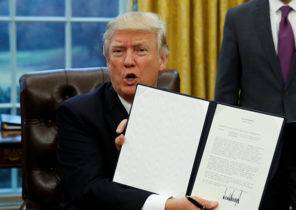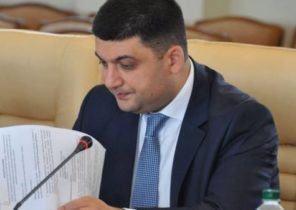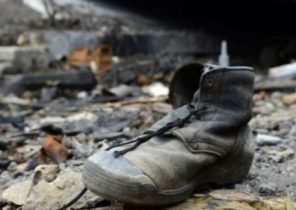
Another mistake Witold Waszczykowski (Witold Waszczykowski) caused quite naturally ridicule, however, the subsequent reaction also showed how far the infantilization of our discussions on international issues. The Minister of foreign Affairs of the European States, which claims to be a regional power and a non-permanent seat of the UN Security Council, claimed that he talked to the diplomats a non-existent state. The headlines proclaim on a sensational meeting with representatives of the Caribbean San Escobar appeared on the websites of prestigious Newspapers and on yellow portals. Half-jokingly, half-seriously heard the explanation that in this region you can find Saint Kitts and Nevis, Saint Lucia, Saint Vincent and the Grenadines, however, San Pablo Escobar there. More meticulous publications drew attention that the members of the UN there are still countries such as San Marino and El Salvador capital San Salvador. On social networks, a wave of sarcastic comments. Users were glad that the meeting with the heads of non-existent States, Minister Waszczykowski at least will not harm Poland. Holders of a good memory remembered “Annan Kafana”, Renata Beger (of Beger Renat) (Polish politician and a Deputy — approx. TRANS.). Waszczykowski must’ve watched the series “Narco” about the legendary drug Lord Pablo Escobar from Columbia Medellin, assumed others. Twitter and Facebook immediately passed a non-existent state (I put “like”, Bravo for the idea!), which was not slow to announce that the mission of the Minister Waszczykowski was a success: people’s Democratic Republic of San Escobar will support Polish bid to become a nonpermanent member of the UN security Council.
About the “fun lyapa Minister”, wrote the Pro-government portal wPolityce.pl. In the end, the press Secretary of the foreign Ministry reported that the Minister has made a reservation: in fact, he talked about his meeting with a colleague from San Cristóbal y Nieves (that is, Saint Kitts and Nevis) at the EU — Community of Latin America and the Caribbean, held in October last year. Explanations why Waszczykowski chose to use the Spanish version of the name, was not followed, however, one can only admire investigations, which held a press Secretary.
So we had the opportunity to laugh and remember the previous pearl Waszczykowski: the statement about cyclists and vegetarians (under the criticism of the left programme of the previous government, allegedly seeking to create a new world “cyclists and vegetarians, using exclusively renewable energy and fighting against any manifestations of religiousness” — approx. TRANS.), the wish to learn the Polish language to the Belarusians, who offered to watch the channel TV Polonia, or the expression “Negro essence” (it was Radoslaw Sikorski (Radosław Sikorski), but the new foreign Minister decided to use it in public, and not, as his predecessor, in a secluded corner of the restaurant with mounted wire). All the hype overshadowed the essence of the case: in less than a year, Poland will meet in the most important international organization, guardian of peace.
After the failure of Bulgaria (due to the pressure of Barack Obama) Poland remained the only candidate in our region, and membership became, in fact, a mere formality, which requires a series of more or less helpful diplomatic meetings. However, apparently, this fact is of interest only analysts from the sphere of international relations. We have not seen anything but short messages and dispatches to the Polish press Agency: no debates, no pamphlets, no lively discussions on the priorities of the Polish membership in the security Council or wider role to be played by Poland on the global chessboard. Meanwhile, here is something to ponder.
Through membership in the Security Council, to which we strive in 2012, Warsaw will be able to Express their opinion on important issues of international security. This voice is not lost in the void, and will form the reality, including in our region. Small Lithuania in 2014-2015 initiated in the security Council a third of the discussions on the Ukrainian theme. Ukraine’s membership in 2016-2017, became not only a sign of solidarity with the victim of the Russian attack, but also gave our neighbor an additional field for the diplomatic resistance of Russia and the possibility to leave the subject of her aggression in the global agenda. The Polish candidates to preserve the sequence at the position of our region, which can be particularly important against the backdrop of potential deals Donald trump and Vladimir Putin. If we take the place in the painting of Norwegian artist Pen Krogh (Per Krohg), in the critical moments of international tension, Warsaw will have to take responsibility. How dramatic and serious consequences are of such decisions, can show an example of resolution No. 1973 on Libya. From 1 January 2018, possibly including the Polish vote will depend on the fate of civilians in the unfolding war or the issue of sanctions against States which threaten global security. Perhaps Poland will get the role of negotiator when the big powers will come to a standstill, or task to work out a compromise out of the situation, threatening the outbreak of a bloody conflict. The focus of Polish diplomacy suddenly the situation in Syria, Mali, Pakistan, Nigeria, Korea, Israel and Palestine or Haiti. At the same time for access to “Polish ears” begin to fight not only the countries involved in conflicts, but also those who want to obtain a permanent seat in the security Council: Germany, India or Brazil.
The presence in the security Council will become for us a window to the world. If we are able to correctly use two-year term of membership, in the long term, we extend the horizons of Polish diplomacy on the world beyond Europe and open eyes to global issues. We get a chance to nurture experts and diplomatic staff. Through the media our membership will be able to play the same role for Polish society. Although the level of discussion around immigration crisis does not inspire special optimism, perhaps this time we will be able to become interested in the problems of the modern world and be aware of their responsibility for its fate.
Perhaps, the Polish Ambassador in 2018-2019 will have to vote for or against a military invasion? How much resonance can take such decisions in society, the debate has shown, which was developed in Germany around the above-mentioned resolution No. 1973 (the Germans abstained). In Poland, similar discussions have erupted in recent times around the theme of the disenfranchised, the invasion of Iraq in 2003. On one side of the fence they stood up, then almost the entire political establishment, on the other, such different people, as Adrian Zandberg (Adrian Zandberg) (politician belonging to the left political camp — approx. TRANS.) and Professor Roman Kuznyar (Roman Kuźniar), which later became adviser to President Bronislaw Komorowski (Bronisław Komorowski).
Maybe we should also start a discussion on the reform of the UN security Council? After all, Poland (promoting one of the priorities of Ukraine and acting in line with the position of France or Mexico) would actively support the idea of limiting the veto of the permanent members in cases when we are talking about massive crimes. Meanwhile, we once again focus all their attention on stupid and not very significant clause, which after a few days no one will even remember.
In the international order, the coming fundamental changes. Hegemony of the West comes to an end, but how it will look postzapadnoy world, we don’t know yet. These global unknown are added to our regional issues. Poland’s membership in the security Council despite all the shortcomings of the UN will enable us to be closer to this change. Therefore, it would be good to debate about membership in the security Council and the role of Poland in the world rose above the level of jokes about San Escobar.







